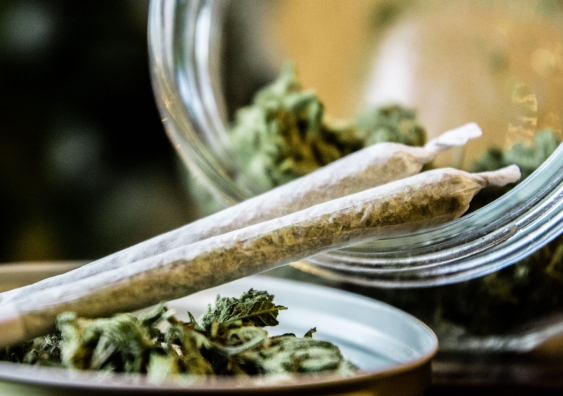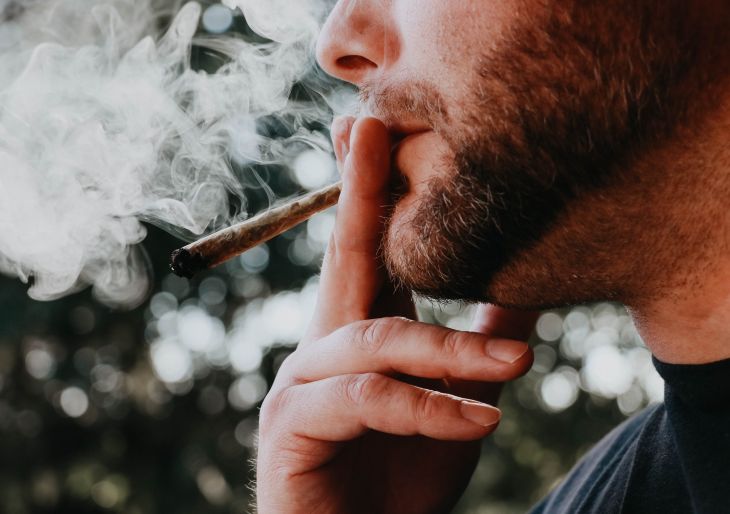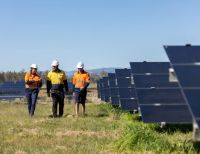We have options when it comes to regulating recreational cannabis
A growing body of data and knowledge from overseas studies could inform Australia’s recreational cannabis laws, says a UNSW Sydney expert in drug policy research.
There is room for improvement in our recreational cannabis policies and a growing body of evidence available to assess policy options. Photo: Elsa Olofsson/Unsplash.
Discussions about legalising recreational use of cannabis have circulated in and out of public debate this year. With the ACT recently legalising cannabis cultivation for personal use, a change in recreational cannabis regulations in other Australian states and territories might be around the corner. But which model of recreational cannabis regulation would suit Australia best?
Dr Vendula Belackova, from the Drug Policy Modelling Program (DPMP) at UNSW’s Social Policy Research Centre, says that various non-prohibition policy models for recreational cannabis are already in use in countries around the world.
“Should Australia loosen recreational cannabis laws, we have a growing body of data and knowledge to lean on from overseas studies in the United States, Canada, Uruguay, the Netherlands or Spain, just to name a few,” she says.
Dr Belackova notes that while medicinal cannabis is legal in all Australian states and territories, patients must have a genuine medical condition assessed by a practitioner to be in possession of cannabis. Yet, non-medicinal cannabis use and possession remains a crime in several Australian states, despite diversion schemes in place.

Non-medicinal cannabis use and possession remains a crime in several Australian states, despite diversion schemes in place. Photo: Shutterstock.
What is the status of recreational cannabis legislation?
Most Australian states and territories currently use de facto police diversion schemes for recreational cannabis possession, which means that people who are deemed eligible (e.g. first or second-time offenders, caught with a small amount of drug only) can avoid criminal proceedings.
“Police diversion schemes position cannabis use as a health or social issue rather than a criminal one,” says Dr Belackova. “These schemes generally see police referring first-time offenders to education or treatment instead of arrests for simple possession.”
The benefits of such a scheme include reduced burden and cost to the police and criminal justice system, she says.
However, with de facto measures, as opposed to decriminalisation by law, the caution is at the discretion of police. This means police aren’t required to offer a diversion to everyone caught in possession of cannabis and can opt for a criminal charge instead.
A downside of de facto diversion is that cannabis use and possession remain a crime by the law and there can be inequalities in the use of police discretion, says Dr Belackova.
Illicit vs fully legalised – two ends of the spectrum
The production and distribution and sale of cannabis for recreational use remains illegal throughout Australia.
“Besides medicinal production, the circulation of recreational cannabis comes from the black market,” says Dr Belackova.
“There are harmful consequences when the black market controls cannabis production, such as increased criminal activity, increased likelihood of young people accessing cannabis and no quality control, meaning no opportunity to manage impacts on physical and mental health.”
On the other end of the spectrum, there is a full-legalisation commercial model, which sees commercial, profit-driven production of cannabis in a private market setting. This has been implemented in over 20 US states to date.
“Commercial legalisation can look appealing to both business and consumers and offers taxation revenue possibilities,” says Dr Belackova.
“But commercialisation does come with some risks. We should consider government interventions like bans on advertising or plain packaging so as to not increase cannabis consumption. Canada embarked on a regulated model four years ago. As opposed to the US, no major increases in cannabis use have been observed in Canada so far, but it’s too early to draw conclusions about the actual impacts of this more regulated model.”
Non-profit model – a middle ground option
A black market model and fully legalised market both essentially operate as for-profit. For-profit market players have incentives to maximise revenue via increased cannabis consumption. They might also supply cannabis that is cheaper to produce but riskier to consume (e.g. containing pesticides or other adulterants). But cannabis law reform could embrace a middle ground option involving a non-profit, consumer-centred model.
“The non-profit model involves restricted cannabis supply and regulation, which has the potential to undermine the black market and in turn promote the health of people who use cannabis while not increasing cannabis consumption,” says Dr Belackova.

A non-profit cannabis policy model is an option for regulation of recreational cannabis use. Photo: Shutterstock.
The non-profit model includes Cannabis Social Clubs in Spain or in Uruguay. Cannabis Social Clubs are private co-operatives collectively cultivating and distributing cannabis for each member’s personal use. There is no advertising to the public or the members, and only existing cannabis users have access to the clubs. It is reported that there are now Cannabis Social Clubs in 17 other countries, with each country varying its approach in the specific legal and policy context.
“Cannabis Social Clubs not only circumvent illicit supply production from the black market, they also offer public health benefits by providing members with information on safer practice of cannabis use,” says Dr Belackova.
“A non-profit model which sees the operation of Cannabis Social Clubs is worth exploration by policymakers considering recreational cannabis reform.”
What’s next for cannabis policy reform in Australia?
From tolerated personal use to regulated and fully commercialised legal markets, there are various policy choices for reforming cannabis use laws.
A survey from the Australian Institute for Health and Welfare (AIHW) shows that more Australians support cannabis legalisation than those who oppose it, and also that the support for removing criminal sanctions towards cannabis might be on the rise.
“There is room for improvement in our recreational cannabis policies and it’s now up to the decision-makers whether they choose to assess alternative options based on the evidence available to date,” says Dr Belackova.







